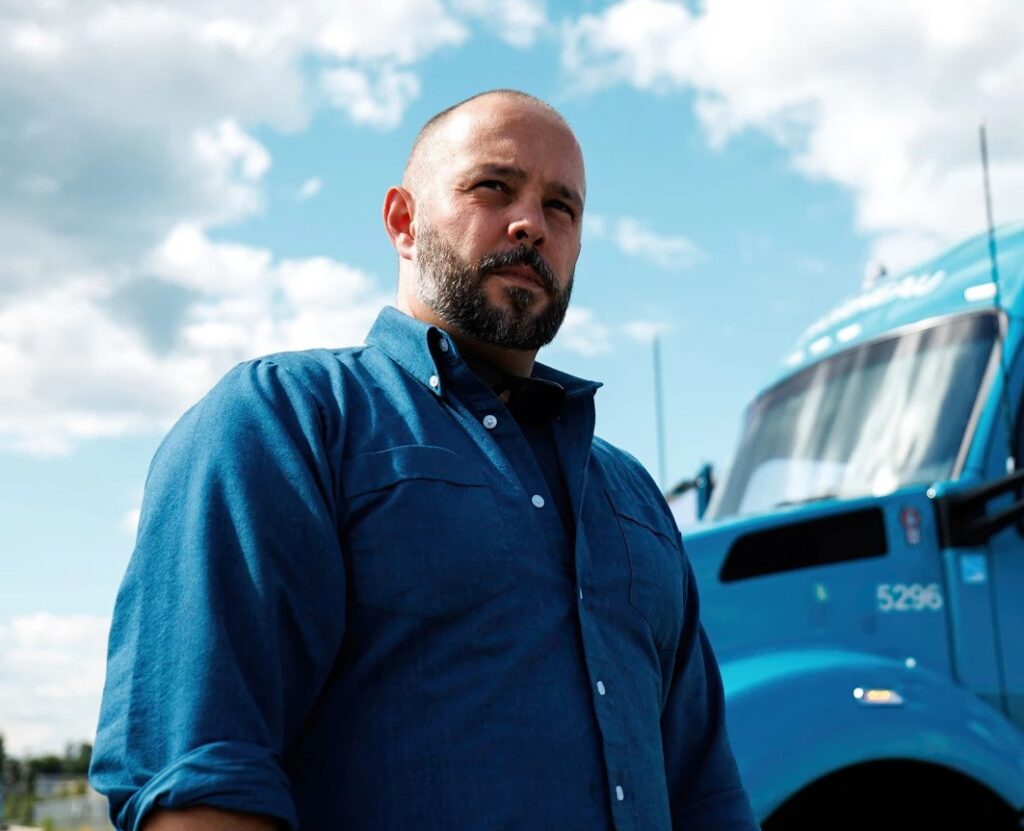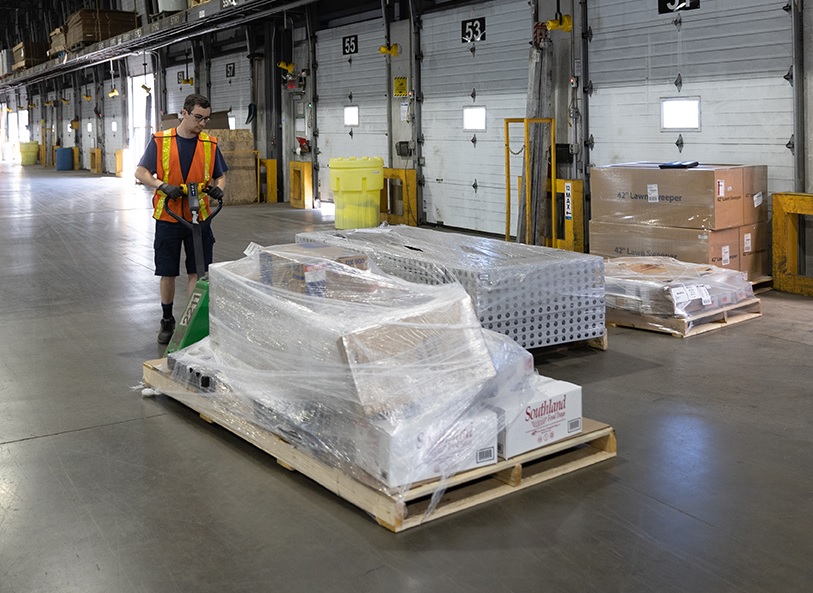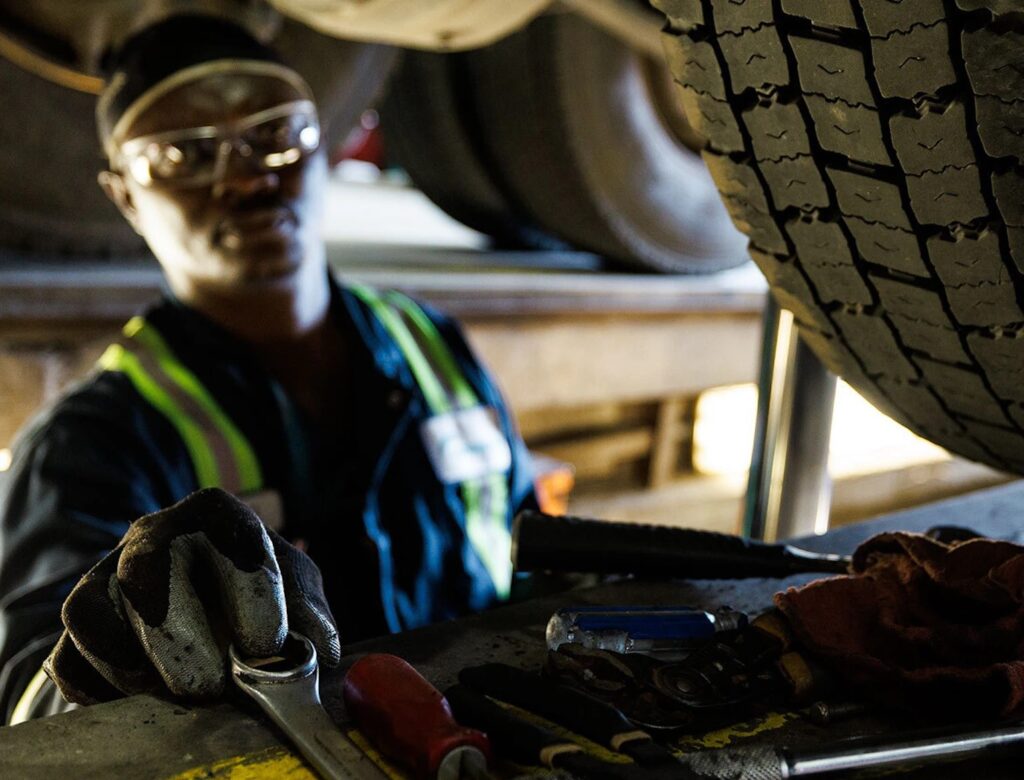Managing the human and financial costs of trucking traumas
Psychological injuries among Quebec male truck and delivery drivers cost an estimated $36.6 million from 2014 to 2019, more than double their cost among police officers ($14 million).
Transportation and warehousing also tops the list of occupations among men when it comes to the costs related to traumatic events such as being involved in a road crash or witnessing a serious work accident.

This should set alarm bells ringing for trucking companies, since they bear the brunt of these costs – 59% in lost productivity. The human costs, absorbed by the victims and the rest of society, are estimated to represent 31% of the total costs.
The data comes from a study conducted by the Institut de recherche Robert-Sauvé en santé et en sécurité du travail (IRSST, an occupational health and safety think tank), the results of which were recently released.
The cost of silence
Trucking remains an industry in which a perception of masculinity permeates, causing some who have experienced a traumatic event to keep silent. Those who do are potentially less safe on the road as their thoughts remain focused on the incident.
“In psychological terms, you could call it loss of contact with reality. You’re in a parallel world, in your head instead of being focused on the road. If you’re not there, you’re really dangerous,” says Jean-Philippe Côté, director of corporate training for SSPT Camionneurs, an organization specializing in post-traumatic stress disorder (PTSD) among truck drivers.
At Via Prevention, an occupational health and safety association, general manager Charles Gagné has read the IRSST study and says he’s not overly surprised. “We know that these are major costs,” he says, adding that he also believes many cases remain unreported.
The same is true at Groupe Morneau, a 1,500-driver fleet operating in Quebec, Ontario and Newfoundland and Labrador, where occupational health and safety manager Julie Bélanger says it’s not uncommon to hear the famous “No, no, I’m OK,” from an employee after a traumatic event.
“We call them, we validate with the worker how they’re doing.”
Julie Bélanger, Groupe Morneau
Even in these cases, her team makes sure to follow up.
“We call them, we validate with the worker how they’re doing. We explain government agencies’ procedures to them and direct them to organizations with which we are partners, who can support them in venting the event if they feel the need to do so,” Bélanger explains.
Even an event that did not occur can cause a traumatic shock. This happened at Morneau, when a driver came very close to going off the road and hitting a power pole.
“The doctor explained to me that it’s not necessarily the seriousness of the event that causes post-traumatic shock, it’s the fear of dying because of it,” Bélanger says.
Côté says he has dealt with a similar case, that of a mechanic working under a lift from which a heavy truck fell. “He wasn’t injured, but he was extremely afraid for his life,” says the PTSD expert.
A dock worker could also witness and remain scarred by a loading maneuver gone wrong.
“It’s an issue that can pertain to any employee,” says Craig Faucette, chief program officer at Trucking HR Canada (THRC).

What fleets can do
Dave Elniski is a trucking safety researcher. He used to be a truck driver and witnessed a serious accident in which a car was hit by a train. Elniski became what he calls an ‘unintentional first responder.’
He wrote a paper on the topic as part of his master’s degree studies at Lethbridge University in Alberta.
Elniski notes that many companies are making an effort to set up assistance programs, but at the same time deplores the fact that too few are focusing on prevention, even though he understands this can be a challenge.
There seems to be large inconsistencies in the quality of such trauma prevention and intervention programs from one fleet to another. “There really is quite a spectrum, from awful to fantastic,” Elniski says.
The researcher believes that trucking fleets should not be afraid to draw inspiration from the best practices found within other industries.
“If a company is struggling with an issue, like a flatbed trucking company has to have drivers tarp a lot of loads, so they need help to build a fall protection plan. Well, why not reach out to the construction and roofing industries?” he says as an example.
In addition, he notes a great sense of helplessness among fleet managers because they have no control over truck stops or the roads where traumatic events can occur.
“There are things that companies can do. If they don’t know what they are, then they need to reach out to safety associations, safety professionals, other industries, other fleet owners and just have these conversations. So, drop the powerlessness, embrace the fact that you impact people and search for solutions because there are some,” he says.
Such solutions could be inspired by the mental health initiatives showcased through THRC’s Top Fleet Employer program, Faucette suggests.
Such programs range from training in mental health aid related to traumatic events, or stress and resilience management programs. But whatever the plan, it’s imperative to involve employees, believes Faucette.
“Getting that feedback and input from employees along the way has ensured that they have a greater uptake or a greater utilization rate because it’s built with the employees in mind,” Faucette says of such programs.
THRC is preparing a series of webinars on psychological health and safety within the workplace this fall, which Faucette says, “is a prominent issue right now”.
According to SSPT Camionneurs’ Côté, dash cams can be a great tool as well, as footage allows managers to see what happened during an accident without having to question the truck driver multiple times, causing them to relive painful moments.
Côté adds one of the keys to a successful intervention is acting early, which helps prevent an acute stress episode from turning into PTSD, which takes much longer to treat and keeps the victim away from work longer.
At Groupe Morneau, the initiatives are numerous.
It has developed a foldable brochure called the Wellness Passport, which is easy to keep in a wallet. It contains a detailed list of services available, including for addiction problems, suicide prevention, domestic violence support and eating disorders.
Mental health videos have also been filmed with renowned psychologist Rose-Marie Charest, and a questionnaire titled “How are you?” enables workers to assess their psychological situation in an informal way, while accessing lots of advice.
“We try to give them concrete tools. We try to reach out to them every way we can, through all kinds of platforms, to give them information,” Bélanger explains.

Have your say
This is a moderated forum. Comments will no longer be published unless they are accompanied by a first and last name and a verifiable email address. (Today's Trucking will not publish or share the email address.) Profane language and content deemed to be libelous, racist, or threatening in nature will not be published under any circumstances.
That’s a hell of a story Eric. Thank you for reporting on it. Traumatic events are a fact of life for anyone who spends a lot of time on the road. They are bound to witness and even become involved in some pretty unsettling experiences. Internalizing those moments can easily lead to PTSD-like symptoms. Truckers are human at the end of the day, and experience trauma just like anyone else, for soldiers to police to healthcare professionals. They deserve to have their feelings taken seriously and with compassion — not just because lost productivity is costly.